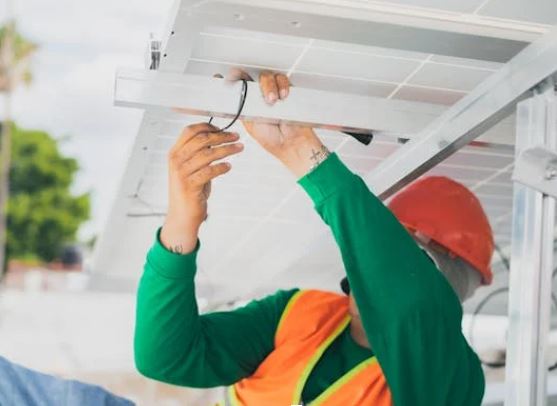The Role and Importance of A Commercial Electrician
Guest Post by Alexia Garcia
The need for proficient and dependable commercial electricians is continually rising.
These specialists are integral to maintaining the safety, functionality, and efficiency of electrical systems within various commercial environments.
This article explores the responsibilities, qualifications, and significance of commercial electricians.
Responsibilities of a Commercial Electrician
A commercial electrician Brisbane handles numerous tasks crucial for the seamless operation of businesses and commercial establishments.
Their duties include:
- Installation: They set up electrical systems in new buildings, adhering to local codes and regulations. This encompasses wiring, lighting, and other electrical components.
- Maintenance and Repair: Regular upkeep and timely repairs of electrical systems are necessary to avoid business disruptions. Commercial electricians diagnose and resolve issues efficiently.
- Upgrades and Renovations: As technology advances, businesses must modernise their electrical systems. Commercial electricians facilitate the installation of new equipment and the updating of old systems to align with contemporary standards.
- Safety Inspections: Conducting safety inspections to spot potential hazards and confirm that electrical systems meet regulatory standards is a primary responsibility. They offer recommendations to enhance safety and efficiency.
- Emergency Services: Electrical emergencies can happen at any time. Commercial electricians provide round-the-clock emergency services to address urgent issues affecting business operations.
Qualifications and Training
Becoming a commercial electrician requires extensive training and proper certifications.
Key qualifications include:
- Education: A high school diploma or equivalent is usually required. Many prospective electricians complete a technical school program or an apprenticeship offering practical experience.
- Apprenticeship: Completing an apprenticeship under the guidance of experienced electricians is essential. This hands-on training lasts several years, covering various aspects of commercial electrical work.
- Licensing: Electricians must acquire a license to practice legally. This involves passing a comprehensive exam that tests knowledge of electrical theory, code regulations, and practical skills.
- Ongoing Education: The electrical field is always evolving. Electricians must stay current with the latest technologies, codes, and safety practices through continuous education and training.

The Impact of Commercial Electricians
Commercial electricians are indispensable to the economic and operational health of Brisbane.
Their significance is evident in several areas:
- Business Continuity: Reliable electrical systems are vital for the uninterrupted operation of businesses. Commercial electricians make sure electrical problems do not interfere with productivity and business activities.
- Safety: Electrical safety is paramount in commercial settings. Proper installation, maintenance, and inspections by qualified electricians prevent accidents, fires, and other hazards.
- Energy Efficiency: With the increasing focus on sustainability, commercial electricians assist businesses in reducing energy consumption through efficient electrical designs and the installation of energy-saving devices.
- Compliance: Adherence to local electrical codes and regulations is mandatory. Commercial electricians ensure that businesses meet these standards, avoiding legal issues and potential fines.
- Innovation: As businesses incorporate new technologies, commercial electricians play a pivotal role in integrating these advancements into existing systems, ensuring smooth operation and enhanced capabilities.
Choosing the Right Commercial Electrician
Selecting the appropriate commercial electrician involves considering several factors:
- Experience and Expertise: Seek electricians with substantial experience in commercial projects similar to yours.
- Reputation: Check reviews, testimonials, and references to gauge the electrician’s reputation and reliability.
- Certification and Licensing: Confirm that the electrician holds the necessary certifications and licenses.
- Insurance: Ensure that the electrician has adequate insurance coverage to protect against potential liabilities.
- Cost and Estimates: Obtain detailed quotes and compare prices, but do not sacrifice quality for lower costs.
Conclusion
Commercial electricians are essential to business infrastructure.
Their expertise ensures that businesses run smoothly, safely, and efficiently.
By understanding their roles, qualifications, and the impact they have, businesses can make well-informed decisions when selecting a commercial electrician, thus securing their electrical systems and contributing to overall success.
